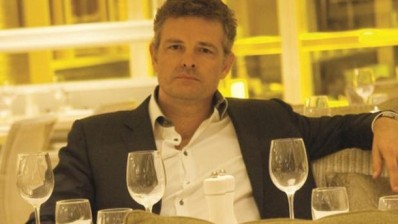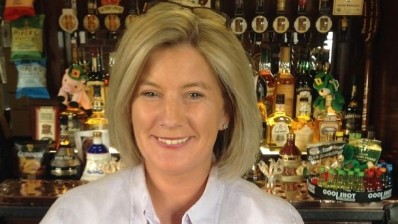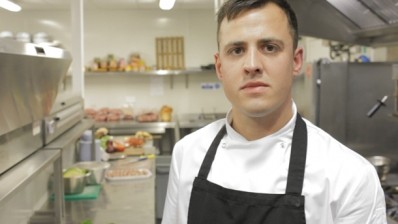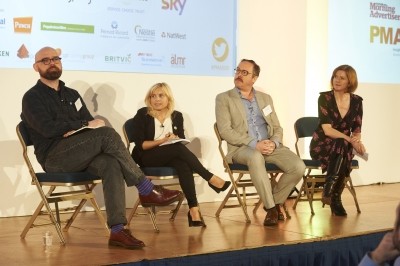The Big Interview: Timothy Taylor's Tim Dewey
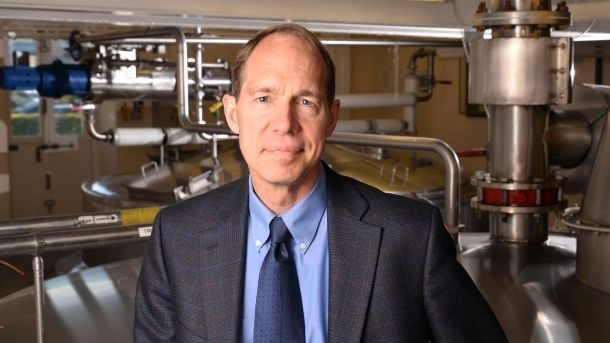
American Dewey, who took over the reins at the Yorkshire-based family brewer at the end of 2014, first fell in love with pubs while studying at Oxford. For Dewey there was ‘something about the British pub’ that American bars have never been able to emulate and he admits spending a little too much on real ale during his studies.
It’s all change at Timothy Taylor. Both Charles Dent, who led the company for 22 years, and head brewer Peter Eells, who racked up 31 years’ service, have stepped down, although Dent remains involved as non-executive chairman. Dewey has had a relatively smooth transition into the pub trade so far, joining the Yorkshire brewer when it was still on a high from its 2014 Champion Beer of Britain win for bitter Boltmaker. A strong financial year has given the new chief executive time to think about where he wants to take the company, and his vision for Timothy Taylor starts in an unlikely place — with American baseball film Field of Dreams.
Building the dream
“In the film, a farmer keeps hearing a voice saying ‘If you build it, they will come’, so he ploughs one of his cornfields and builds a baseball court. From the outside looking in at Timothy Taylor I could see all the investment (£18m over the past eight years) but we’d only spent £5,000 advertising in consumer media. The investment had been on the infrastructure — the if-you-build-it part — and there was an assumption the trade and consumers would come. What I saw was great, we’ve got that investment, we’ve got the facilities, so now how do we go about creating and stimulating the demand?”
Timothy Taylor beers are, Dewey says, an ‘unashamedly’ expensive product. A long career in the spirits market, working first for Diageo
predecessor International Distillers & Vintners and later Drambuie, has left him unwilling to play the ‘price volume game’, and Dewey is calling for a re-think from consumers and the industry on how they approach real ale.
“If you analyse the ale market, the pricing is very flat, whereas most markets break down into cheap, standard, premium, and deluxe.
Spirit of the industry
“The burgeoning craft spirit sector is adding value to the category, but we have the opposite dynamic in the beer industry. When I started with vodka, there was own label and Smirnoff. Absolut had only just come on to the market, and everyone was saying you couldn’t charge that much for vodka. Look at the market now. It’s not necessarily growing, it’s about driving interest. Absolut is doing well, but so are brands priced way above it.
“It’s one of the real differences between the two industries — in the spirits industry they have really focused on building value, whereas the brewing mentality has been all about driving volume instead. We don’t want to compromise on that. It starts out as ‘Okay, well, to get more volume we’ll lower our prices’ then it turns into ‘Oh, our margins aren’t as good’ and before you know it you’re looking to save money and your beer becomes just like everybody else’s.”
Certainly the craft-beer boom and the divisive small-brewer’s relief
has been a double-edged sword for Timothy Taylor. Although he says there’s ‘no question’ that the increase in the number of breweries has
created more interest and brought
a younger interest to the category, the reductions in duty given to smaller brewers remain a problem.
“It was originally done to help offset a lack of economies of scale and to help encourage investment to get breweries up and running, but what has happened is that most of these breweries have used it to supplement price. The majority of craft
beers are being marketed into the
trade cheaper than standard beers because of the fact that duty rate is so much lower. That’s not what craft brewers should be doing. The duty break should be helping to stretch the value of the category and if anything it’s depressing it. That’s an overall challenge for the industry.”
Knock-on effect
The new national living wage, which will see an hourly rate of £7.20 paid to those aged 25 and over, also poses a challenge, although Dewey stresses he does back higher wages. “I agree with the principle, but it will have quite an impact. We’ve been crunching the numbers and people focus on the rise in the minimum wage, but if you have somebody who has extra responsibilities on a slightly higher wage than the minimum they’ll also want higher wages. It’s actually a knock-on effect all the way through the salary structure.”
He feels Timothy Taylor has been too cautious about choosing sites in the past, becoming too fixated on tick lists — an attitude Dewey is already starting to change. The company has just bought its first pub in seven years and is on the hunt for more, with York and Harrogate high on its hit list.
“We want more pubs. We’ve set aside money for the past seven years, but for a variety of reasons we haven’t purchased any. It’s so easy to look at the one thing you don’t like about a site rather than the nine things you do.
“Some of the pubs that we looked at the past and thought weren’t right, somebody bought and made a virtue of the problems. It’s like buying a house. You start out with a tick list but I’d be surprised if anyone, except Roman Abramovich, comes back with something perfect. I think we were a bit too precious and not
making trade-offs.”
Future positives
Shouting more loudly about the brewer’s existing sites, as well as buying more, is another area Dewey is concentrating on. “We want to really make Timothy Taylor pubs look like Timothy Taylor pubs. With the tenancies, it’s down to them to run the pub as entrepreneurs, but I don’t think we did enough to help them see how stocking our beer was a positive point of difference. Even with some of our managed houses, there was nothing to say it was one of our pubs.”
Despite some challenges facing the industry, there’s no doubt Dewey believes in a bright future for pubs and for Timothy Taylor. He’s joined by more new blood at the company in the form of three new non-executive directors — all descendants of the company’s founder — and is keen to take the Yorkshire brewery forward.
